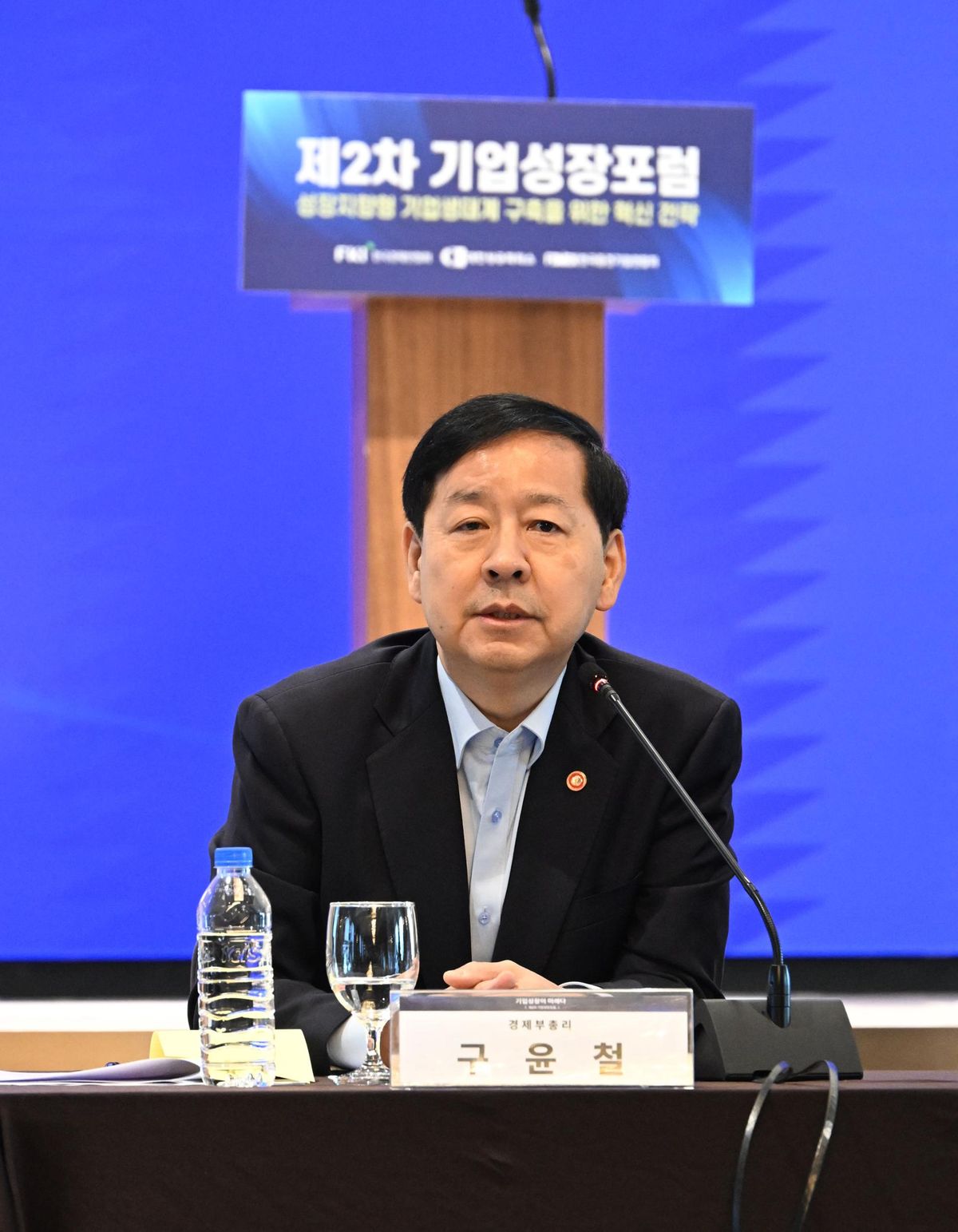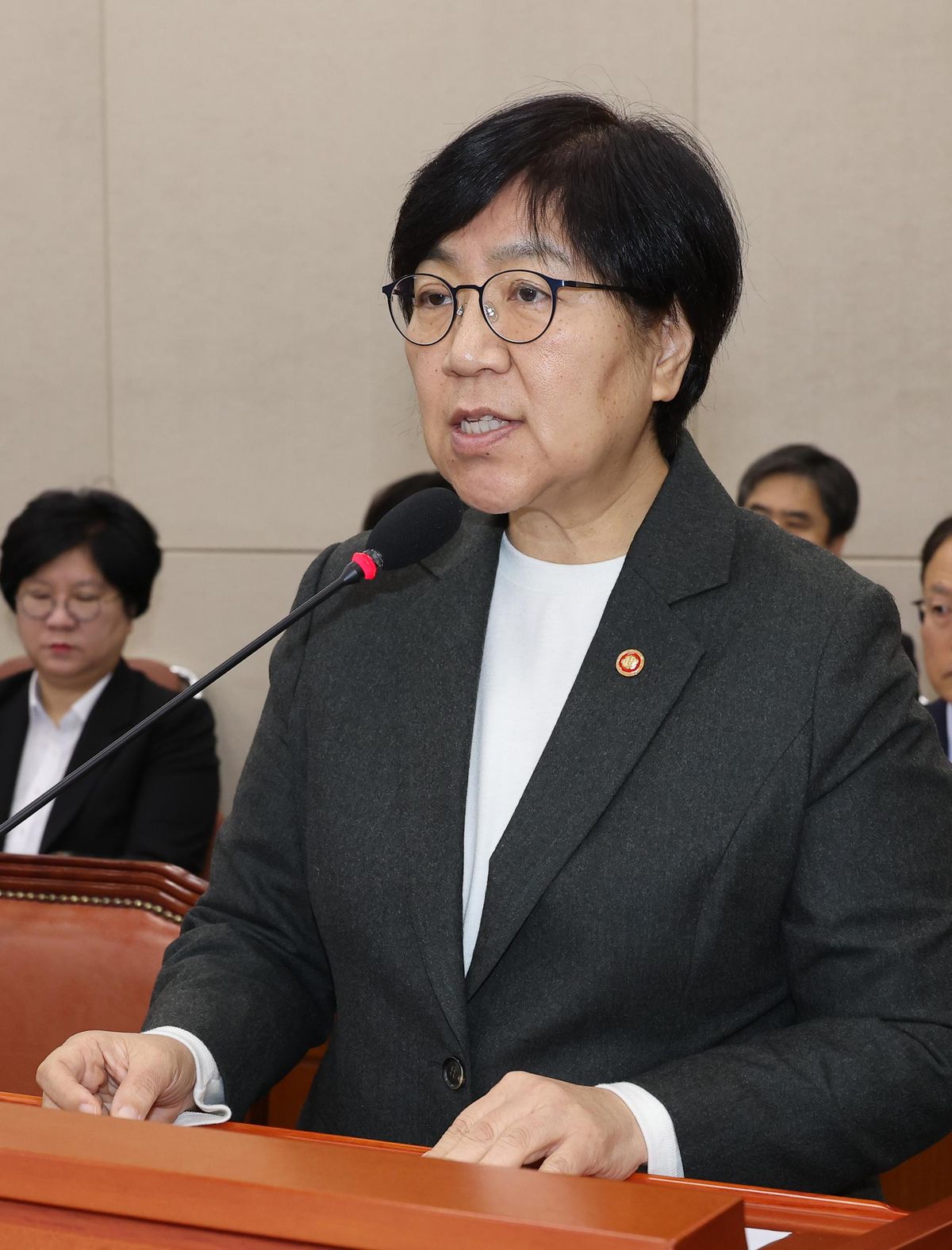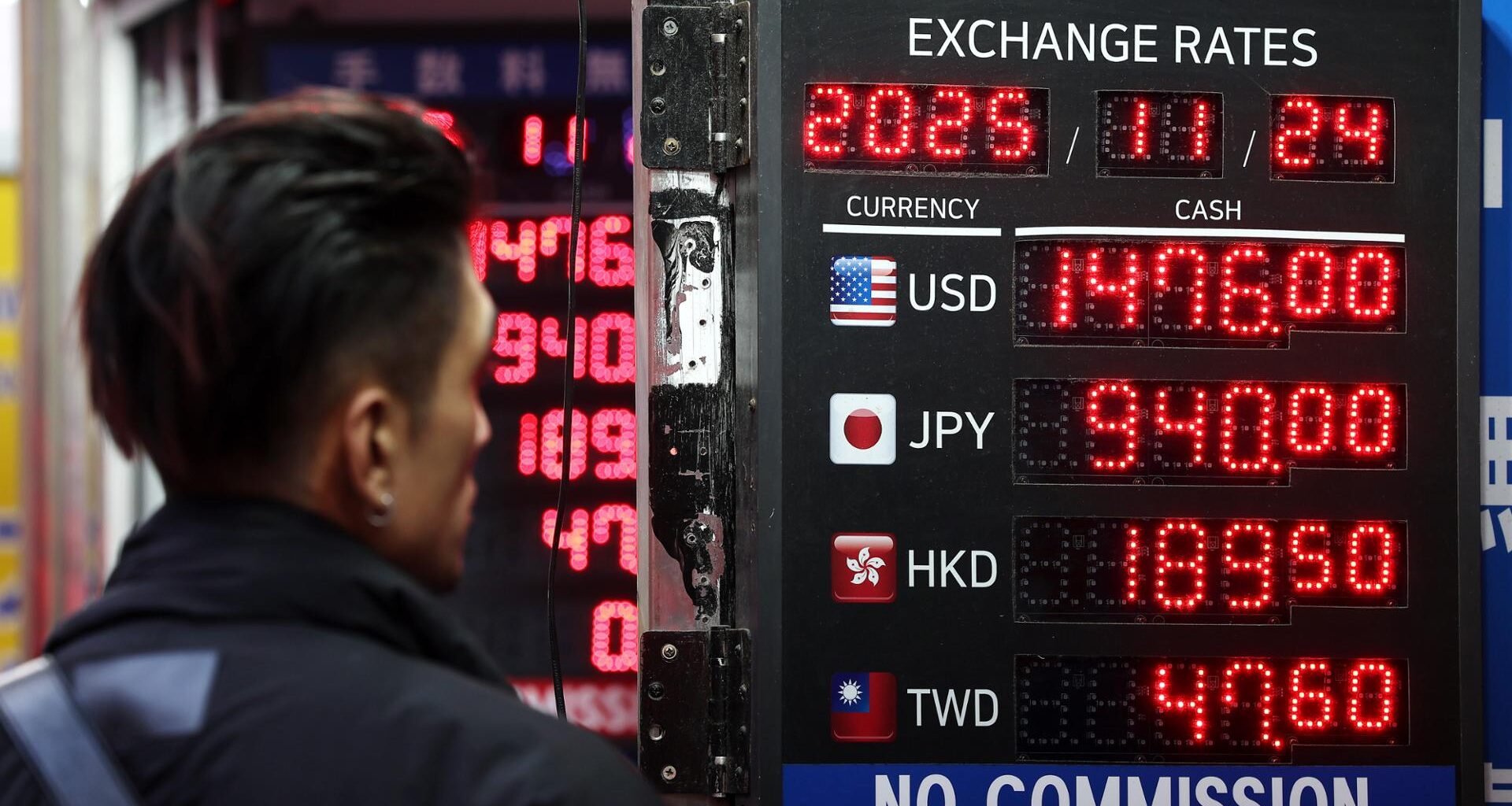
Deputy Prime Minister and Minister of Economy and Finance Koo Yun-cheol / Yonhap
Financial and monetary authorities are seeking to mobilize the National Pension Service (NPS) in a bid to stabilize the weakening won against the U.S. dollar, according to officials Monday.
The move comes as NPS, Korea’s state-run pension fund, is expanding its overseas investments from an asset pool valued at over 1,400 trillion won ($948.38 billion).
Estimated at hundreds of trillions of won, such large-sale investments require converting substantial amounts of won into dollars, driving capital outflows and raising concerns as the exchange rate remains above the worrisome 1,400 level.
On Monday, the won closed at 1,477.1 per dollar in daytime trading, a decline of 1.5 won.
This marked the sixth consecutive day of losses and brought the currency to a seven-month low.
The Ministry of Economy and Finance said it held a closed-door meeting on Monday with the Bank of Korea (BOK), NPS and the Ministry of Health and Welfare, under which NPS operates.
It was the first four-way meeting since Deputy Prime Minister and Minister of Economy and Finance Koo Yun-cheol and BOK Gov. Rhee Chang-yong agreed during a separate talk on Nov. 14 to “work closely with key market participants, including NPS.”
“The focus was on mitigating foreign exchange volatility stemming from NPS’ large-scale overseas investments,” a finance ministry official said, declining to provide further details.

Minister of Health and Welfare Jeong Eun-kyeong / Yonhap
Sources familiar with the matter speculated that options for NPS to take a more active role in currency hedging may also have been discussed.
Such a role could involve increasing the supply of dollars in the market by partially selling U.S. dollar-denominated overseas assets, such as stocks and bonds, if the won-to-dollar rate rises excessively.
They also said that up to 10 percent of NPS’ overseas assets may be used for currency hedging, with the ratio adjusted more flexibly depending on market conditions.
However, concerns remain that actively using the NPS as a tool to stabilize the exchange rate could negatively affect the management of citizens’ retirement assets.
Speaking on condition of anonymity, an economics professor said the government will need to “carefully balance mobilizing NPS to help stabilize the exchange rate without undermining the fund’s investment returns.”
Some sources added that the government and NPS are also considering increasing the proportion of domestic investment.
They noted that raising the share of domestic stocks could help slow the pace at which NPS converts won into dollars, thereby easing pressure on the foreign exchange market.
Meanwhile, Minister of Health and Welfare Jeong Eun-kyeong urged the fund management division at NPS to “respond swiftly, based on a thorough analysis of the market, to safeguard the profitability and stability of NPS.”
She implicitly referred to the overseas investments of NPS, which are growing annually, including an estimated 702 trillion won in 2024.

